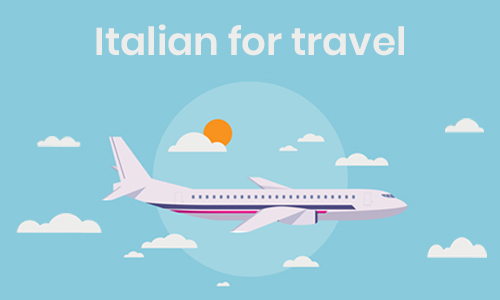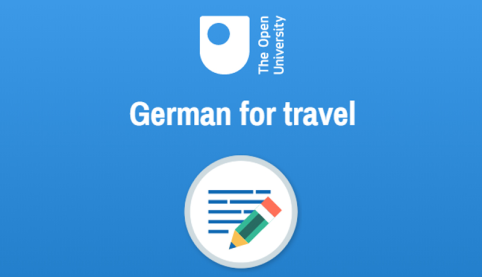
Happy European Day of Languages!
Did you know that there are between 6000 and 7000 languages in the world? Or that, in Europe alone there are about 286 living languages, spoken by a population of approximately 736 million people?
The EU has 24 official and working languages: (European Commission, 2015)
| Bulgarian | Estonian | Irish | Portuguese |
| Croatian | Finnish | Italian | Romanian |
| Czech | French | Latvian | Slovak |
| Danish | German | Lithuanian | Slovenian |
| Dutch | Greek | Maltese | Spanish |
| English | Hungarian | Polish | Swedish |
In addition, there are other national, regional or minority languages (such as Catalan, Welsh or Occitan, for instance) as well as the languages of peoples who have migrated to Europe and that still preserve their heritage languages (such as Chinese, Bengali or Urdu).
The European Day of Languages has been held on 26th September annually since 2001. Many schools, cultural institutes, and universities - including the Open University - take part in a celebration of the linguistic diversity of Europe. We can rejoice in the fact that more than half of Europeans (54%) can hold a conversation in at least one additional language, 25% can speak at least two additional languages, and one in ten can speak at least three. (Eurobarometer, 2012)
But if you are one of the other 46% of people who only speak one language, don’t worry… as Mexican author Carlos Fuentes once said, “monolingualism is a curable disease”! If you want some great ideas about how to kick-start your language learning journey, let Lindsay Dow explain why she studies languages at the Open University, and watch more videos on her YouTube channel to find out why she is a great advocate for language learning and plurilingualism.
But why learn another language? Well, if Lindsay’s enthusiasm isn’t convincing enough, think of learning another language as a way to understand other ways of living, and how it can enable better intercultural understanding. Multilingualism contributes to the key European values of democracy, equality, transparency and competitiveness. Or, if you prefer more practical benefits, learning a language makes travelling working and studying in other countries so much more rewarding and enjoyable!
Here on OpenLearn you will find articles, videos, free courses and other resources about language learning. So, what are you waiting for?
Test your language skills
-
Test your language skills: Spanish, French, Italian and German
Take part now to access more details of Test your language skills: Spanish, French, Italian and GermanHow are your language skills? Heading off on a trip to Spain, France, Italy or Germany and want to know how you'd fare getting by? Find out with our virtual, interactive adventures and test your language skills on the way!

-
Spanish for travel: Test your skills
Take part now to access more details of Spanish for travel: Test your skillsTest your Spanish language skills as you immerse yourself on an interactive journey through Spain.

-
French for travel: Test your skills
Take part now to access more details of French for travel: Test your skillsTest your French language skills as you immerse yourself on an interactive journey through France.

-
Italian for travel: Test your skills
Take part now to access more details of Italian for travel: Test your skillsTest your Italian language skills as you immerse yourself on an interactive journey through Italy.

-
German for travel: Test your skills
Take part now to access more details of German for travel: Test your skillsTest your German language skills as you immerse yourself on an interactive journey through Germany.

-
Could you be a super linguist?
Take part now to access more details of Could you be a super linguist?Whether you are monolingual or speak more than one language, test your linguist skills with our short quiz and see how many languages you correctly identify.

-
Hafan: What do you know about Welsh language and culture?
Take part now to access more details of Hafan: What do you know about Welsh language and culture?The future of Wales is as exciting as its past. Take our challenge, listen to stories from the locals and get to grips with Welsh culture and language.

How to learn a language
-
How to learn a language
Learn more to access more details of How to learn a languageThis course introduces the skills and strategies for language learning, setting realistic goals when learning languages and keeping motivated, practise speaking skills and vocabulary learning strategies. It will enable you to evaluate resources and create a virtual immersion environment.

-
The Goldlist method: Learning vocabulary by writing it down
Read now to access more details of The Goldlist method: Learning vocabulary by writing it downAre you struggling with a foreign language? Tired of flashcards and memorising glossaries? If so, the Goldlist method may help, all you need is a notebook and a pen!

-
Language in the real world
Learn more to access more details of Language in the real worldThis free course, Language in the real world, explains and illustrates why a knowledge about how language works (i.e. ‘linguistics’) is helpful – some might say essential – for different aspects of our everyday lives. It provides an introduction to ideas around what language is and to the field of Applied Linguistics, which is dedicated to ...

Exploring English
-
Exploring the English language
Learn more to access more details of Exploring the English languageHow has the English language changed over the course of the last 500 years? What are the social and political contexts that have affected how these changes have come about? This free course, Exploring the English language, will consider the development of the English language from the 15th to the 19th century.

-
A short introduction to the English language
Learn more to access more details of A short introduction to the English languageThis free course, A short introduction to the English language, will look at the role language plays in our lives, with a particular focus on the English language. It will examine the history and the future of the language, from the Anglo-Saxons and Shakespeare to social media communication and stand-up comedy.

-
English in the world today
Learn more to access more details of English in the world todayHow did English become the global force it is today? This free course, English in the world today, explores the status of the language and its worldwide diversity. It looks at how social and political factors influence people's attitudes towards it, and at the relationship between one's linguistic heritage and sense of identity.

Language for work and travel
-
Intermediate Spanish: A trip across Latin America
Learn more to access more details of Intermediate Spanish: A trip across Latin AmericaIn this free course you will embark on a journey off the beaten track, to see the natural wonders of Latin America and some of its people. Intermediate Spanish: A trip across Latin America invites you to discover how people in South and Central America have adapted to the different environments which have created the conditions in which ...

-
Beginners’ French: A trip to Avignon
Learn more to access more details of Beginners’ French: A trip to AvignonThis course helps you to acquire the basic language to find your way around a French town. You will learn how to understand and give directions, ask about accommodation, book a hotel room at the tourist information office and get information about what to see and do in the local area. You will visit some museums in Avignon and buy a film for ...

-
Intermediate German: The world of work
Learn more to access more details of Intermediate German: The world of workThis course concentrates on developing cultural knowledge and practical language skills in listening, speaking, reading, writing and interacting in a variety of situations.
What can learning languages do for you?
-
How can languages further your career?
Watch now to access more details of How can languages further your career?Discover how speaking a different language can make you more employable with this short video.

Video
Level: 1 Introductory
- Let more real Open University Language students tell you Why study language?
- Discover 9 reasons to learn a foreign language
Try our language courses for free!
-
Open Centre for Languages and Cultures
Learn more to access more details of Open Centre for Languages and CulturesCheck out a range of FREE language courses in this dedicated hub.

-
Introduction to Ukrainian language and culture
Learn more to access more details of Introduction to Ukrainian language and cultureBuilding on the experience developed since the launch of the Open Centre for Languages and Cultures, this free short course provides an introduction to Ukrainian languages and culture. This course is for everybody who is interested in finding out about Ukraine and its people and wants to get a first insight into its rich cultural heritage. ...

-
Beginners’ Tamil: a taster course
Learn more to access more details of Beginners’ Tamil: a taster courseStart exploring the Tamil language and its scripts and sounds. You will learn how to greet people and introduce yourself, as well as how to count from one to ten. You will also be introduced to Tamil society and culture and will learn about the food and music popular in Tamil-speaking societies.

-
Beginners’ Chinese: a taster course
Learn more to access more details of Beginners’ Chinese: a taster courseLearn about Mandarin Chinese as a tool for communication and gain insights into Chinese society and culture. This free course, Beginners’ Chinese: a taster course, provides a brief introduction to the Chinese language, its scripts and sounds, and how words are formed. You will hear short conversations where people greet each other and introduce ...

-
Introduction to Arabic
Learn more to access more details of Introduction to ArabicIn this free course you will learn the Arabic alphabet, vowels, and also a little bit about the history of the Arabic language.

-
Gaelic in modern Scotland
Learn more to access more details of Gaelic in modern ScotlandModern Scotland is a multi-lingual country. Gaelic, Scots and English, along with newer introductions from Europe and beyond, all influence the way Scotland's people now speak to each other and to the rest of the world. Created with the positive encouragement of Bòrd na Gàidhlig and with support from BBC Alba, this free course, Gaelic in modern ...

-
Croeso: Beginners' Welsh
Learn more to access more details of Croeso: Beginners' WelshThis course is taken from Croeso, a beginners' language module that concentrates on Welsh as a tool for communication, but it also provides some insights into Welsh societies and cultures through printed and audio materials. It will be of interest to all those who want to improve their language skills in order to communicate more easily and ...

-
Download our Chinese characters learning apps
Read now to access more details of Download our Chinese characters learning appsDr Qian Kan, Head of Chinese at The Open University, led the development and the update of the Chinese@OU app, which is ready to download. She explains below why it is important to learn Chinese.

-
Get ready for beginners’ French
Learn more to access more details of Get ready for beginners’ FrenchWhen you hear people speaking French, do you wish you could join the conversation? Do you feel passionate about French culture and being more able to immerse yourself in it? Or do you have an opportunity to work in a French-speaking country? There are lots of reasons for wanting to learn French, so if you have decided that now is the time for ...

-
Getting started with German 1
Learn more to access more details of Getting started with German 1Almost 100 million people speak German as their main language. Most of them live in Germany, Austria and Switzerland, making German one of the most widely-used languages in Europe. Although now associated with economic success and advances in science and technology, German has a long-standing reputation as the language of poets and thinkers, die...

-
Beginners’ Italian: food and drink
Learn more to access more details of Beginners’ Italian: food and drinkThis free course, Beginners' Italian: food and drink, focuses on buying drinks and snacks in an Italian café, as well as on greeting and introducing yourself in Italian. It does not require any previous knowledge of Italian.

-
Getting started with Spanish 1
Learn more to access more details of Getting started with Spanish 1If you want to learn a new language for work or for leisure, this free course will introduce you to one of the most widely spoken languages in the world – Spanish. Whether this is the first time that you are learning Spanish, or you have already picked up some words and phrases from travelling across the Spanish-speaking world, this course ...

Study with The Open University
-
Study Languages with the OU
Learn more to access more details of Study Languages with the OUWant to learn a new language or study the development and variety of English around the world? Check out these courses from the OU.

External link

Rate and Review
Rate this article
Review this article
Log into OpenLearn to leave reviews and join in the conversation.
Article reviews
Thank you for your message and your interest in learning with OpenLearn. It is great that you wish to obtain a certificate for your English skills.
When you complete one of our courses, you will be able to download a certificate. If you have already completed a course and need help with downloading your certificate, please let me know I can help you with this.
If you would like to select a course to study, you can view all of our free courses here:
http://www.open.edu/openlearn/free-courses/full-catalogue
Best of luck with your studying.
Kind regards,
The OpenLearn Team